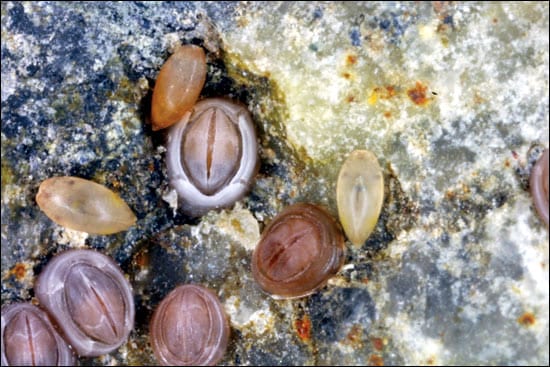Life in Extreme Environments
July 1, 2005
Scientists have long known of organisms adapted to environments that appear inhosptable to any form of life, living in the 600-700??F waters of hydrothermal vents on the sea fl oor, in pitchdark mine shafts a mile below ground, or clinging to the frigid underside of polar ice sheets. But now, WHOI researchers have been surprised to fi nd that barnacle larvae can survive for weeks frozen in sea ice, even though they spend most of their lifecycle in comparatively warm intertidal zones. Not only did some larvae live for four weeks in the ice, when thawed, many were able to continue their maturation into reproducing adults. The team.s discovery expands understanding of the environmental tolerance of marine invertebrates and provides clues to their means of geographic dispersal and potential response to global climate change. For more on what marine juveniles can tell us, go to Oceanus Magazine.

